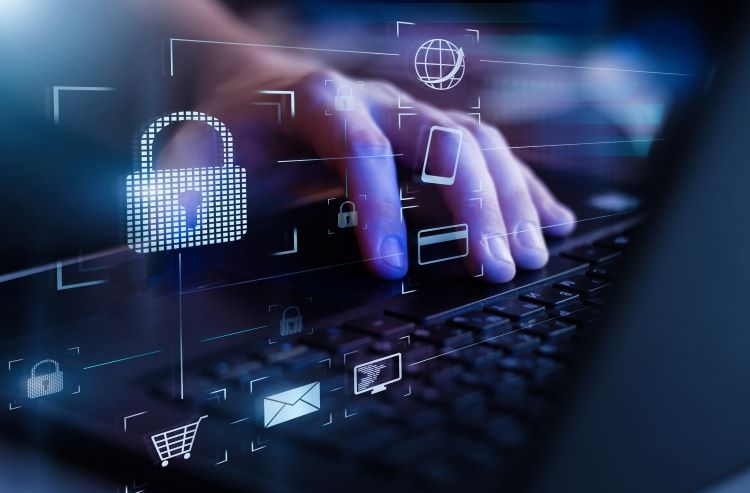On-line safety has by no means been extra vital than it’s as we speak. With a lot of our private {and professional} lives interconnected via the digital world, the significance of defending our info can’t be overstated. But, many individuals underestimate the dangers related to insufficient on-line safety habits till it is too late. Whether or not you are scrolling via social media, managing your funds, or working remotely, safeguarding your digital presence is essential. This text dives into important suggestions that can make it easier to defend your self and your family members from falling sufferer to cyber threats.
Understanding the Significance of On-line Safety
Earlier than studying methods to defend your self, it is important to know why on-line safety issues. Each time you entry the web, you expose your units and knowledge to potential threats. From hackers making an attempt to steal delicate knowledge to malicious software program designed to breach your privateness, the hazards are quite a few. Cybercrime has soared in recent times, focusing on people and organizations alike. Failing to prioritize safety can result in identification theft, monetary loss, and even emotional misery. By taking proactive steps, you may decrease these dangers and keep one step forward of potential attackers.
Creating Sturdy and Distinctive Passwords
Passwords are sometimes the primary line of protection towards hackers, however sadly, many individuals depend on weak, simply guessable passwords. Utilizing your pet’s title or “123456” is like leaving your entrance door open for criminals to enter. A powerful password must be at the least 12 characters lengthy and embody a mixture of upper- and lowercase letters, numbers, and particular characters. Keep away from reusing passwords throughout a number of accounts, because it makes you weak to credential-stuffing assaults if one account is compromised. Higher but, think about using a password supervisor to generate and retailer advanced passwords, guaranteeing most safety with out the effort of memorization.
Implementing Two-Issue Authentication
Even the strongest password has its limitations, which is why two-factor authentication (2FA) has turn out to be vital for securing on-line accounts. 2FA requires you to confirm your identification utilizing two strategies, sometimes your password and a one-time code despatched to your gadget or app. This additional layer of safety ensures that even when a hacker cracks your password, they will not acquire entry to your account with out that second verification step. Many providers, from electronic mail to on-line banking, supply 2FA choices, and enabling them is a straightforward but efficient solution to improve your on-line security.
Looking Safely with Safe Connections
The web sites you go to can both safeguard your knowledge or depart you weak to breaches. All the time be certain that you are looking on safe websites, recognized by the “https://” prefix and a padlock image within the URL bar. These indicators signify that the web site encrypts knowledge exchanged between your browser and the positioning, making it more durable for hackers to intercept. Public Wi-Fi networks, whereas handy, might be breeding grounds for cybercrime. If that you must use them, think about using a Digital Non-public Community (VPN) to encrypt your web connection and hold your actions non-public.
Protecting Software program and Gadgets Up to date
Cybercriminals usually exploit vulnerabilities present in outdated software program. Common updates repair these weaknesses and add new security measures to defend your units from threats. Out of your working system to your favourite apps, be proactive about conserving every thing up-to-date. Allow computerized updates every time doable to make sure you’re protected with out having to recollect to test manually. Don’t overlook in regards to the firmware on units like routers, which regularly will get neglected however performs a vital position in your on-line security.
Watch out for Phishing Scams
Phishing scams stay probably the most frequent methods cybercriminals trick people into revealing delicate info. These scams usually come within the type of emails, textual content messages, and even cellphone calls claiming to be from trusted organizations. They ask you to click on on malicious hyperlinks, obtain dangerous information, or present private particulars like your passwords or banking info. All the time scrutinize incoming messages for crimson flags akin to generic greetings, misspelled domains, and a way of urgency. Should you’re not sure, it is safer to not interact. As a substitute, contact the group straight utilizing verified contact particulars to verify the legitimacy of the communication.
Utilizing Safe and Trusted Networks
Not all networks are created equal, and a few can put your info susceptible to being intercepted by cybercriminals. Public networks, significantly these with out passwords, are infamous for his or her lack of safety. Whereas it may be tempting to connect with free Wi-Fi at a café or airport, doing so can expose you to threats like man-in-the-middle assaults. To remain safe, restrict delicate actions—akin to on-line banking or buying—to personal, encrypted networks. While you’re on the go, contemplate creating a private hotspot out of your cellphone as a substitute of counting on public Wi-Fi.
Defending Your Private Info
Your private info is a useful commodity within the digital world, and cybercriminals are keen to use it for his or her acquire. Be aware of what you share on-line, particularly on social media platforms. Keep away from posting delicate particulars akin to your deal with, cellphone quantity, or full date of start. Fraudsters can piece collectively fragments of knowledge out of your on-line presence to commit identification theft or social engineering assaults. Regulate the privateness settings in your social media accounts, and suppose twice earlier than sharing something that could possibly be used towards you. Bear in mind, much less is commonly extra in relation to defending your private knowledge.
The Ongoing Journey of On-line Safety
On-line safety just isn’t a one-time effort however somewhat an ongoing dedication. Cyber threats proceed to evolve, and staying knowledgeable in regards to the newest dangers and finest practices is important. By implementing the measures outlined above, you may considerably cut back your vulnerability and create a safer digital setting for your self and your family members. Bear in mind, taking small steps as we speak can have a huge impact in your on-line safety tomorrow.
FAQs
1. Why is on-line safety vital for people?
On-line safety protects people from threats like identification theft, monetary fraud, and lack of privateness. It ensures that delicate info stays protected and minimizes vulnerabilities in a linked world.
2. What’s a password supervisor, and may I take advantage of one?
A password supervisor is a software that securely shops and generates robust passwords to your accounts. It is extremely beneficial, because it simplifies the method of making and managing distinctive passwords, particularly for a number of accounts.
3. How can I acknowledge phishing emails?
Search for indicators like generic greetings, spelling errors, suspicious hyperlinks, or an pressing tone within the message. Confirm the sender’s electronic mail deal with and keep away from clicking on hyperlinks or downloading attachments until you are certain they’re reliable.
4. What ought to I do if I believe my info has been compromised?
Act shortly by altering your passwords, enabling two-factor authentication, and monitoring your monetary accounts for unauthorized transactions. Relying on the severity, chances are you’ll must contact the related authorities or providers for help.
5. How usually ought to I replace my software program?
Commonly test for and set up updates as quickly as they’re obtainable. Many applications supply an computerized replace characteristic—allow this selection to remain protected with out guide intervention.



